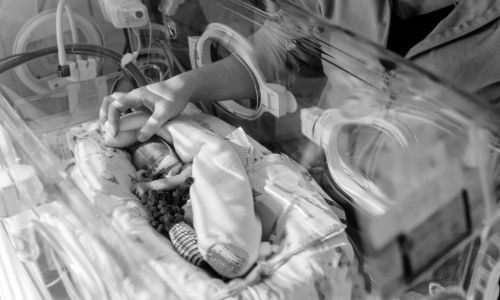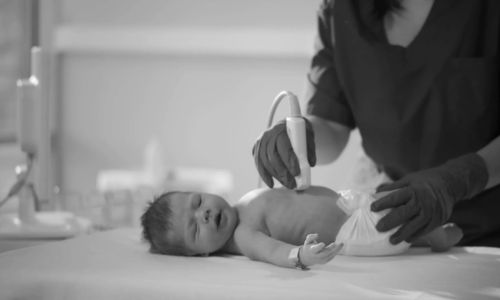VYNEODAYS24
vygon neonatology days 2024
The first 72 hours of life, a global view to improve clinical practice and newborn care
21 and 22 November 2024
Simultaneous translation and materials available in English, French and Spanish.
Vygon Neonatology Days 2024
The first 72 hours of life, a global view to improve clinical practice and newborn care
Welcome to the vyneodays for another year!
If it’s your first year and you still don’t know us, we’ll tell you more about these days:
The #VYNEODAYS24 conference was created with the aim of creating a space dedicated to health professionals to share knowledge and discuss the latest innovations in terms of techniques and procedures focused on children.
This year, we wanted to focus on the first 72 hours of a newborn’s life, as these are crucial for its development and in many cases, survival. During this period, adaptive changes essential for extra-uterine life occur and organs are particularly sensitive and vulnerable.
#VYNEODAYS24 will host presentations and face-to-face workshops given by spanish and international experts. The content will address topics such as neurosensory protection, ventilation, safe thermal environment, enteral nutrition and neonatal-family bonding, among others.
In this second edition, the neonatology conference aims to provide attendees with an updated view of newborn care, promote best practices, facilitate the exchange of experiences, promote patient safety and provide continuing education tools.
Why in November? We celebrate this day under the umbrella of the World Prematurity Day celebrated every 17 November. We look forward to seeing you from 21 to 22 November in Valencia and online
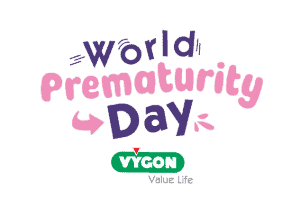
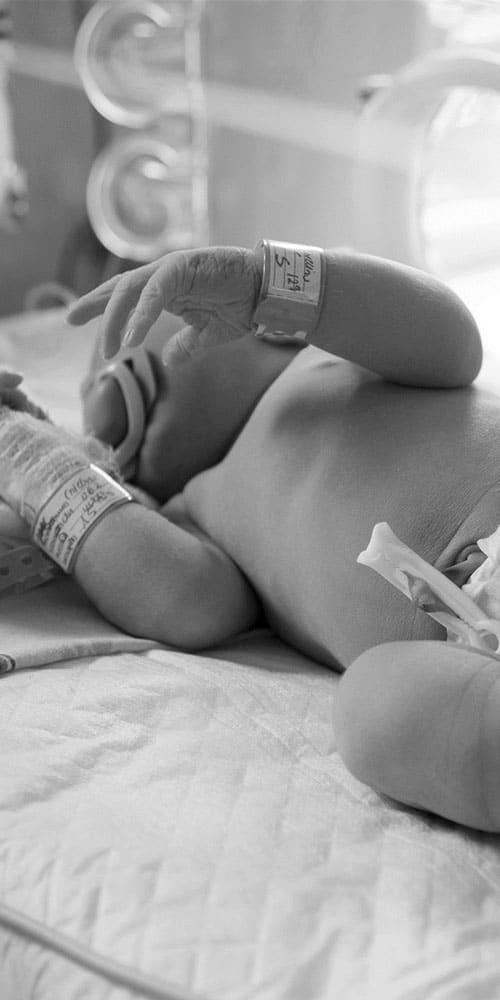
A day tailored to your needs
Discover VYNEODAYS two days focused on the treat and care of neonatal patients with advanced training.
Develop your skills with leading experts in the field of vascular access in neonatology.
Simultaneous translation and materials available in English, French and Spanish.
Virtual simulation workshops
We continue to work on our commitment to training, this year the conference will be held at the facilities of the Catholic University of Valencia.
Take the workshops at the simulation centre and make your learning truly experiential.
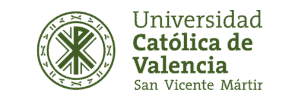
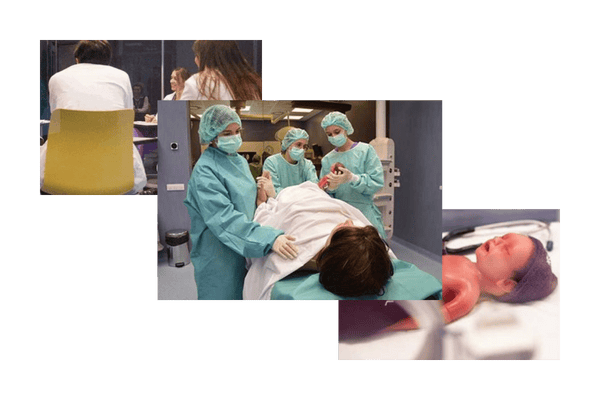
How do you want to participate?
Choose the modality that best suits your preferences. Limited places – don’t miss out! – Simultaneous translation and materials available in English, French and Spanish.
Bronze option
Delayed access to recordings- 13 Pre-day videos on techniques and procedures related to the first 72 hours of life (care, nutrition, neonatal resuscitation, vascular access…) available on the training platform.
- Articles of interest
- Downloadable infographics
- Tutorials on techniques and procedures
Silver Option
Streaming Access- 13 Pre-day videos on techniques and procedures related to the first 72 hours of life (care, nutrition, neonatal rescue, vascular access…) available on the training platform.
- 13 live (streaming) presentations by Spanish and international experts.
- Access to online workshops focused on the neonatal patient, given by professionals.
- Round tables and spaces for answering questions (streaming)
- Access through the training platform to:
- Articles of interest
- Downloadable infographics
- Tutorials on techniques and procedures
Programme of the conference
Check out the full programme, with pre-congress content, presentations, debates and workshops oriented to the care of neonates
Simultaneous translation and materials available in English, French and Spanish.
Pre-congresss contents
First videos available from 7 November 2024 via the training platform.
Welcome. The importance of the first 72 hours of life
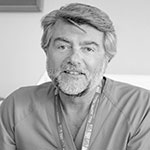
Manuel Sánchez Luna
The risks of hypothermia during delayed umbilical cord clamping and neonatal resuscitation

Dr. Morten Breindahl
Neonatal resuscitation and ventilatory stabilisation. Latest recommendations
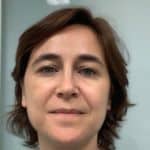
Raquel Escrig
Neonatology Service of the Hospital La Fe where I have worked as an assistant doctor and clinical head of the maternity and delivery area. Perinatology research group at IIS La Fe. Extraordinary Doctorate Award from the University of Valencia. SENeo Neonatal CPR Group. Medicines Committee of the AEP and Spanish paediatric pharmacy group of the SEFH.
Drops of life. Strategies for colostrum optimisation
What is the importance of colostrum for neonatal health? This presentation will discuss techniques to promote its production, extraction and early administration, highlighting its immunological and nutritional benefits. In addition, practical recommendations will be offered to maximise the positive impact of colostrum on early neonatal development.
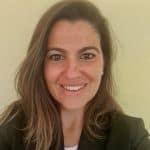
Minerva Prado
International Breastfeeding Consultant -IBCLC.University Expert in Breastfeeding URL- Blanquerna.Maternal and Child Nurse in the Breastfeeding and Ankyloglossia Unit, Hospital Universitari General de Catalunya.

Carmen Luna
University Expert in Breastfeeding URL-Blanquerna.Paediatric Nurse. Surgical Nurse.Breastfeeding Consultant. Infant Sleep.Breastfeeding and Ankyloglossia Unit. Hospital Universitari General de Catalunya.
Is there really a problem with the cleanliness of enteral feeding systems in the NICU and what are the current recommendations?

Dr. Keliana O'Mara
Neonatal Intensive Care Unit (NICU) Clinical Pharmacy Specialist / Neo-CF Medical-Scientific Liaison at Chiesi USA, Inc.
Brain haemorrhage prevention strategies
Dr. Montes will discuss measures to reduce the incidence of intracranial haemorrhages, especially in premature babies. She will address risk factors, birth management and postnatal stabilisation, among other techniques. Based on the latest research, she will provide practical and evidence-based strategies to protect the neurological development of vulnerable newborns.

Mª Teresa Montes Bueno
Nurse assistant in the Neonatal Intensive Care Unit (NICU), Hospital Universitario La Paz (HULP), Madrid.
The importance of ultrasound monitoring. How to detect and prevent complications; brain ultrasound.
This presentation will highlight the crucial role of brain ultrasound in the early detection and prevention of neonatal complications. Current techniques and protocols for ultrasound monitoring, their application in clinical practice and how these tools help to identify and manage neurological problems in newborns, improving long-term outcomes, will be discussed.
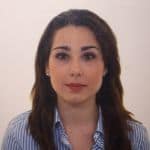
Inma Cubells Serra
Assistant doctor, neonatology section, Hospital General Universitario Castellón. Master’s Degree in Neonatology UAB.
The first neonatal catheter - Decision Algorithm
During this lecture, we will learn from Dr. Piersigilli how to choose the right catheter for our patient, and what tools can help us with the decision making process, highlighting clinical criteria, recommended techniques and best practices to optimise safety and efficacy in neonatal care.
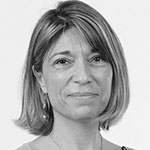
Dr. Fiammetta Piersigilli
Physician (MD), Doctor of Medicine (PhD), Neonatologist – Head of Clinic, University Clinics Saint Luc (Belgium) – Member of the Advisory Board of NEVAT – Associate Professor at the University of Leuven.
Real-time ultrasound: The Gold Standard for navigation and tip location in the NICU - umbilical venous catheters
This paper discusses the use of ultrasound for navigation and catheter tip location in neonatology, highlighting its accuracy and benefits in improving the safety and efficacy of neonatal catheter placement.
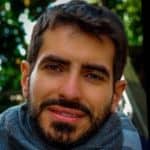
Dr. Giovanni Barone
Neonatologist, Neonatal Intensive Care Unit, Ospedale Infermi di Rimini, AUSL della Romagna, Rimini, Italia.
Strategies in the management of UCV and current state of evidence
During this presentation we will discuss the most effective strategies for umbilical venous catheter (UVC) management in neonates, as well as the current state of scientific evidence. Best practices for CVU insertion, maintenance and removal will be discussed, and recommendations based on the latest research to minimise risks and optimise clinical outcomes in neonatology will be reviewed.
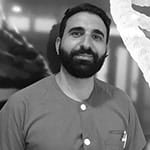
Imanol Tajuelo
Neonatal intensive care nurse at Hospital 12 de Octubre and specialist in paediatric and neonatal echo-guided cannulation.
Improving the care of the youngest children, focusing on the safety and quality of Vascular Access
In this presentation we will review strategies to improve neonatal care with a focus on the safety and quality of vascular access. Advanced techniques for vascular access insertion and maintenance will be discussed, as well as evidence-based practices to minimise complications and optimise safety in neonatal care.
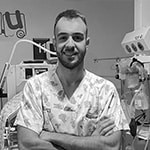
Pau López
Expert in vascular access in paediatric patients and trainer in ultrasound at Castellón Hospital.
The importance of skin care during insertion, fixation and maintenance of venous access, latest recommendations to avoid complications
During this lecture we will discuss the importance of skin care during the insertion, fixation and maintenance of venous access in neonates. We will discuss the latest recommendations and practices to prevent related complications, such as infections and skin lesions, thus ensuring safe and effective care that improves clinical outcomes in neonatal care.

Pablo García Molina
Specialist paediatric nurse. Coordinator of the Nursing Unit for Ulcers and Complex Wounds, Hospital Clínico Universitario de Valencia. Associate lecturer in the Department of Nursing, University of Valencia. Coordinator of the Upppediatrics scientific group. GNEAUPP Advisory Committee
Use of cyanoacrylate in neonatology; latest international recommendations.
This paper reviews the use of cyanoacrylate in neonatology, highlighting the most recent international recommendations and their impact on clinical practice to optimise neonatal care.

Matheus (Roland) Van Rens
Programme
21 November 2024 – Simultaneous translation and materials available in English, French and Spanish.
11:30 h – 12:00 h
Accreditation collection and welcome
13:00 h – 14:00 h
Registration and welcome
Opening session and fundamentals
14:00 h – 14:10 h
Welcome from the Scientific Committee
The scientific committee will welcome the attendees and explain the objectives of the conference.
Care block
14:10 h – 14:30 h
Risk of neonatal brain haemorrhage
In this paperwill address the risk of neonatal cerebral haemorrhage, highlighting risk factors, diagnostic methods such as cerebral ultrasound, and evidence-based preventive strategies. Associated complications will be discussed and the latest recommendations for early detection, effective management and reduction of neurological sequelae will be reviewed, with the aim of improving long-term health outcomes in vulnerable newborns.

Catalina Morales
Attending physician, neonatology department, Hospital Universitario 12 de Octubre.
14:30 h – 14:50 h
Hypothermia prevention (Temperature control and management)
This paper addresses the prevention of hypothermia in neonates, focusing on temperature control and management to ensure thermal stability and improve clinical outcomes in neonatal care.

Dr. Morten Breindahl
14:50 h – 15:10 h
Kangaroo method Separation 0 – Latest updates
During the presentation, the most recent advances in the Kangaroo Method will be discussed, highlighting its implementation to minimise mother-infant separation from birth. The benefits of skin-to-skin contact on thermal stability, respiratory regulation and bonding development will be discussed.

Isabel Mora
Supervisor and BZ specialist, Maternity Hospital Malaga
15:10h – 15:30h
Q&A – Block I
Respiratory block
15:30h – 15:50h
Non-invasive ventilation : an evidence-based approach
During this presentation the reasons for preferring non-invasive ventilation over intubation in neonates will be evaluated, highlighting its benefits in reducing complications and improving neonatal recovery and well-being.

Dr Charles Roehr
Professor of Neonatal and Perinatal Medicine, University of Bristol
15:50h – 16:10h
Importance of surfactant in the neonatal patient
During this presentation we will review the importance of surfactant in neonatal patients, explaining its crucial role in lung function, prevention of respiratory diseases and improvement of clinical outcomes in neonates.

Laura Sánchez
16:10h – 16:30h
Break
16:30h – 16:50h
Optimising Neonatal Airway Management
Challenges and considerations for promoting success and safety in neonatal airway management

Gemma Edwards
16:50h – 17:10h
Pneumonia 0 proyect
The “Pneumonia 0 proyect” project aims to eradicate childhood pneumonia through comprehensive prevention, early detection and effective treatment strategies. This effort includes the promotion of appropriate vaccinations, improvements in child hygiene and nutrition, as well as continuing education for both health professionals and communities. By focusing on risk factor reduction and rapid intervention, it aims to save lives and improve the quality of life for children around the world.
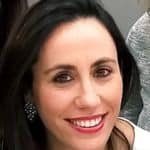
María Cernada
17:10h – 17:40 h
Q&A – Block II
17:40 h – 18:10 h
Break
18:10 h – 20:00 h
Practical workshops
Programme
22 November 2024 – Simultaneous translation and materials available in English, French and Spanish.
08:30 h – 09:10 h
Welcome
09:10 h – 11:00 h
Practical workshops
11:40 h – 11:30 h
Break
Neonatal Enteral Nutrition Block
11:30 h – 11:50 h
Care and strategies for enteral feeding: Why is it important to start enteral feeding at a very early stage?
This presentation will discuss the importance of initiating enteral feeding at a very early stage in neonates, highlighting the care and strategies that optimise intestinal development and improve long-term clinical outcomes.
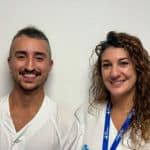
Raquel Rodríguez Gil and Javier García
Nursing supervisor of the neonatal service and clinical nurse at the neonatology unit of the Vall de Hebron Hospital.
11:50 h – 12:10 h
Are enteral feeding systems sufficiently accurate and safe for neonatal drug delivery? International overview
During this presentation she will assess the accuracy and safety of enteral feeding systems for neonatal drug delivery, reviewing the international landscape and best practices to ensure adequate and safe dosing.

Dr. Keliana O'Mara
Neonatal Intensive Care Unit (NICU) Clinical Pharmacy Specialist / Neo-CF Medical-Scientific Liaison at Chiesi USA, Inc.
Neonatal Vascular Access Block
12:10 h – 12:30 h
The neonatal DIVA patient
This lecture will address the complexity of the “DIVA” (Difficult IntraVenous Access) patient, which refers to the difficulty of accessing the superficial veins of the upper limbs. in the neonatal setting. Underlying causes, clinical challenges, and innovative strategies to manage this critical condition will be explored.

Begoña Loureiro González
Neonatologist, Cruces University Hospital. Neonatal Research Coordinator, Biobizkaia Research Institute.
12:30 h – 12:50 h
Consequences of the venous algorithm in neonates
This presentation will discuss the consequences of venous depletion in neonates using Microsite micropuncture and echo. The importance of these less invasive techniques to reduce the impact on vascular health, improve pain management and minimise long-term complications in neonatal care will be highlighted.

Imanol Tajuelo
Neonatal intensive care nurse at Hospital 12 de Octubre and specialist in paediatric and neonatal echo-guided cannulation.
12:50 h – 13:10 h
Strategies in the prevention of catheter extravasations
She will review current strategies to prevent catheter extravasations in neonates, offering recommendations and effective practices to minimise risks and improve safety in catheter management.

Dra. Fiammetta Piersigilli
Cliniques Universitaires Saint Luc – Brussels, Belgium
13:10 h – 14:10 h
Lunch
14:10 h – 14:30 h
Clinical case presentations – Infection prevention measures related to vascular access
During this session, key measures to prevent infections associated with vascular access in neonates will be reviewed. Practices such as hand hygiene, correct use of antiseptics during catheter insertion and maintenance, and continuing education of healthcare personnel will be discussed.

Pau López
Expert in vascular access in paediatric patients and trainer in ultrasound at Castellón Hospital.
14:30 h – 15:30 h
Q&A – Blocks III & IV
The teachers will resolve any doubts raised by the students during the session.
15:30 h – 16:00 h
Conclusion
12:45 h – 13:00 h
Conclusions – farewell of the day with the scientific committee
Speakers
Scientific Committee

Imanol Tajuelo
Neonatal intensive care nurse at Hospital 12 de Octubre and specialist in paediatric and neonatal echo-guided cannulation.

Pau López
Expert in vascular access in paediatric patients and trainer in ultrasound at Castellón Hospital.

Dra. Fiammetta Piersigilli
Cliniques Universitaires Saint Luc – Brussels, Belgium
Speakers

Manuel Sánchez Luna

Raquel Escrig
Neonatology Service of the Hospital La Fe where I have worked as an assistant doctor and clinical head of the maternity and delivery area. Perinatology research group at IIS La Fe. Extraordinary Doctorate Award from the University of Valencia. SENeo Neonatal CPR Group. Medicines Committee of the AEP and Spanish paediatric pharmacy group of the SEFH.

Minerva Prado
International Breastfeeding Consultant -IBCLC.University Expert in Breastfeeding URL- Blanquerna.Maternal and Child Nurse in the Breastfeeding and Ankyloglossia Unit, Hospital Universitari General de Catalunya.

Carmen Luna
University Expert in Breastfeeding URL-Blanquerna.Paediatric Nurse. Surgical Nurse.Breastfeeding Consultant. Infant Sleep.Breastfeeding and Ankyloglossia Unit. Hospital Universitari General de Catalunya.

Mª Teresa Montes Bueno
Nurse assistant in the Neonatal Intensive Care Unit (NICU), Hospital Universitario La Paz (HULP), Madrid.

Inma Cubells Serra
Assistant doctor, neonatology section, Hospital General Universitario Castellón. Master’s Degree in Neonatology UAB.

Dra. Fiammetta Piersigilli

Imanol Tajuelo
Neonatal intensive care nurse at Hospital 12 de Octubre and specialist in paediatric and neonatal echo-guided cannulation.

Pau López
Expert in vascular access in paediatric patients and trainer in ultrasound at Castellón Hospital.

Pablo García Molina
Specialist paediatric nurse. Coordinator of the Nursing Unit for Ulcers and Complex Wounds, Hospital Clínico Universitario de Valencia. Associate lecturer in the Department of Nursing, University of Valencia. Coordinator of the Upppediatrics scientific group. GNEAUPP Advisory Committee

Isabel Mora
Supervisor and BZ specialist, Maternity Hospital Malaga

Laura Sánchez

María Cernada

Begoña Loureiro González
Neonatologist, research coordinator of the Neonatal Unit. Cruces University Hospital/Biocruces Bizkaia

Dr. Keliana O´Mara
Neonatal Intensive Care Unit (NICU) Clinical Pharmacy Specialist / Neo-CF Medical-Scientific Liaison at Chiesi USA, Inc.

María López

Dr. Morten Breindahl

Dr. Giovanni Barone
Neonatologist, Neonatal Intensive Care Unit, Ospedale Infermi di Rimini, AUSL della Romagna, Rimini, Italia.

Matheus (Roland) Van Rens

Dr Charles Roehr
Professor of Neonatal and Perinatal Medicine, University of Bristol

Gemma Edwards

Raquel Rodríguez Gil and Javier García
Nursing supervisor of the neonatal service and clinical nurse at the neonatology unit of the Vall de Hebron Hospital.
Do you have any questions?
Who can attend VYNEODAYS?
Vyneodays is aimed at all healthcare professionals with an interest in neonatal care, from experienced specialists to those wishing to broaden their knowledge in the field of neonatology.
How can I register for the event?
To register for VYNEODAYS, simply visit the ‘Registration’ section of our website, choose one of the available modalities and follow the instructions. You will be redirected to our training campus where you will have access to the materials and live lectures from 7 November. If you experience any difficulties, please do not hesitate to contact us by email at comunicacion@vygon.com.
What does my registration include?
Registration for VYNEODAYS offers full access to all pre-congress content, presentations, debates, practical workshops and downloadable material. Depending on the modality chosen.
You can consult the modalities here
What kind of certificate will I get?
Depending on the type of registration chosen, you will be able to download your certificate from our training platform once you have completed the training course.
- Bronze and Silver Modalities: attendance certificate from campusvygon
When will my certificate be available?
Depending on the type of registration chosen, you will be able to download your certificate once you have completed the training course:
- Silver and Bronze mode: The campusvygon certificate of attendance will be available upon completion of the course, provided that you have completed all the content.
How long will I have access to the materials?
In the silver option, you will have access to the course materials and videos until 16 December 2024.
The contents of the bronze option will be permanently accessible.
In which language can I take the course?
The materials will be available in Spanish, English and French.
You will also be able to follow the live sessions in English, Spanish and French.
Leave your message
* Legal conditions
- Data controller: Vygon SA
- Purpose: The management of your personal data collected through the form for registration on the Training Campus, as well as the following purposes:
- Receive information about courses that may be of interest to you.
- Receive information about Vygon and Vygon Spain’s commercial activity and products.
- Receive the class 3 magazine.
- Exercise of rights: At any time you may exercise your rights of Access, Rectification, Deletion, Portability, Limitation or, where appropriate, Opposition to comunicacion@vygon.com.
For more information about our responsible use of your data please see our privacy policy.
